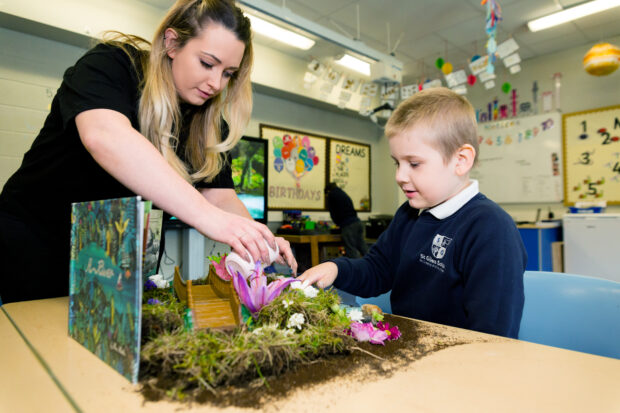
In this blog post, schools across the country share a range of their approaches to increase attendance levels amongst their pupils, with a focus on the transition between classes, year groups, and support when moving to a new school.
Diane Henson, Headteacher - Wheelers Lane Technology College
We have various strategies to keep children engaged over the summer and to be ready for school in September. We think it is important to build the best foundation possible over this period, in order to maintain high attendance over the year. Some of these approaches include:
- Transitional support to maximise attendance and wellbeing in September. Visits are made to primary schools in the summer term to speak with all students, but especially vulnerable students who may find the transition to secondary school more challenging. A virtual transition is also shared with all incoming students including a virtual tour of the new school. This is particularly important as it means that students can view the layout of the school as many times as they like over the summer, to ease any concerns about finding their way around.
- We have systems in place to identify students at risk of persistent absence prior to the end of term, and we create a plan for each of these pupils. Starting this before the summer break encourages positivity, active engagement and strengthens the sense of community for the summer and beyond. This also means we are in the best possible position to start supporting pupils from day one of the new academic year.
- We begin promoting our October celebration and awards evening prior to breaking up for the summer. The focus is on celebrating success – both academic, for regular attendance and also for work done to support the local community. The English faculty also sets a reading challenge over the summer holidays to help students prepare for their work when they return.
Michelle O’Dell, Attendance Intervention Manager - John Taylor Multi Academy Trust
We have a programme of managing attendance for those making the transition from year 6 to year 7:
- In meeting with our secondary schools, we ask schools to meet with any pupils/parents who were persistently absent at primary (our transition data collection format asks for individual pupil data) to set expectations. We have a plan for these pupils and have reasonable adjustments in place at the start of the academic year to support good attendance.
- We also ask secondary schools to focus on Year 7, to set the ethos and expectations of the school from the outset. Schools have been asked if any Year 7 pupil is absent for 4 days or more within the first 4 weeks of the year, that we expedite our graduated response, and meetings with the pupils take place if this threshold is met.
- Schools are also asked to set clear expectations before the end of term for any pupils in any year that are already at risk of persistent absence and implement support from the first day of the new term. We encourage them to monitor the attendance of these pupils and have a plan to support their attendance if required.
Matt Rooney, Principal - St Giles Special Educational School
Learners at our school have a broad range of needs, and all have an Education Health and Care Plan (EHCP). We believe that ‘no dreams are out of reach’ and to help pupils reach their dreams they must attend school as much as they are possibly able. Our support includes:
- Links with previous schools and transition: We know that starting, moving schools or class groups can be a big deal, so we have a 7-step transition plan which allows us build a bespoke package around the needs of each learner and their families. We also start conversations with the learner’s current school or setting once placements are required, and attend EHCP annual reviews and specific multi-agency meetings. We work together to understand attendance patterns over time and the strategies that have been successful, which helps us all to hit the ground running.
- Targeted support: Some learners will need ongoing support throughout the school year to keep attendance high. Teachers and our family liaison workers work with families and other agencies to create plans to improve and sustain attendance. We also have regular structured conversations with families to address specific concerns or challenges and work hard to de-stigmatise social care and early help, meaning referrals are made at the earliest opportunity.
- Working with the NHS to reduce absence: Many of our children have complex medical conditions, are more susceptible to common illnesses or have regular appointments with health professionals. Working with them, we now host a number of clinics and facilitate routine tests such as blood or weighing in school. We also have a Therapy Hub for local NHS therapy services, meaning learners have direct access to speech, physio and occupational therapists in school for one day each week. Both initiatives mean children do not have to miss a day or half-day of school to attend appointments, which has significantly improved attendance.
Read guidance on working together to improve school attendance
Access resources for children, young people and schools to support attendance